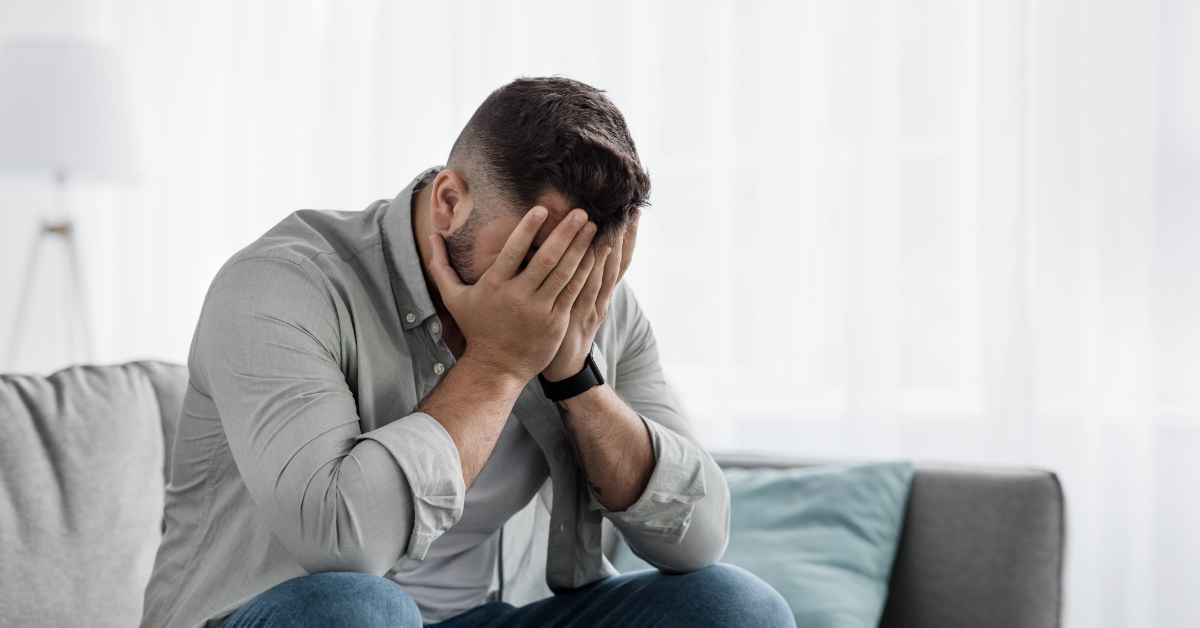53. Yoga Therapy for Trauma with Anissa Hudak
Anissa is a certified yoga therapist who helps traumatized women release the trauma from their bodies through yoga therapy.
Episode Highlights:
- How Anissa developed her interest not just in yoga, but yoga as a therapy
- How has yoga therapy helped people whom Anissa has worked with?
- The difference between yoga and yoga therapy
- How does yoga therapy release trauma?
- What is a yoga therapy session like?
Episode Summary:
In this episode, I’m joined by Anissa Hudak, a yoga therapist who shares how yoga can be a tool in healing both the body and the emotions. We talk about how trauma can get trapped in the body and how yoga therapy offers a unique approach to release that emotional and physical pain. Anissa takes us through her own personal journey, from a regular yoga enthusiast to a certified yoga therapist specializing in trauma healing. She explains how yoga therapy can help those dealing with PTSD, anxiety, and emotional trauma by connecting the mind and body in a safe, controlled environment.
Anissa also discusses the difference between traditional yoga and yoga therapy. While yoga classes can be a great workout and may trigger emotional releases, yoga therapy goes deeper—it’s specifically tailored to treat conditions like PTSD, traumatic brain injuries, and other physical and emotional trauma. She emphasizes the importance of reconnecting with our bodies, especially for those who’ve experienced trauma, as a way to heal and rebuild a sense of safety and control.
Tune in for a deep dive into the benefits of yoga and how it can support your emotional and physical well-being.
Related links and resources:
Transcript
Episode 53. I am your host, Carrie Bock. And today we are talking with Anissa Hudak on yoga therapy. So if you know anything about our show, we are all about mind, body, emotion, spirit. God has created us with all of these different aspects of our being. And it’s helpful to understand that healing can come in many different forms for people.
I like that yoga therapy combines the physical healing of our bodies while also there’s a level of emotional healing because trauma can become stored in the body. And we get into some of that on the show today.
So without further do here is my interview. And this I’m so excited to have you on the show today to talk about yoga therapy.
This is just gonna be, I think, really helpful and informative for some of the, listeners who have experienced trauma. A lot of times there’s overlap between, you know, people who’ve experienced trauma and people who experience anxiety and OCD. So thank you for coming and talking with us about this.
Anissa: Well, thank you for having me on.
Carrie: Tell me a little bit about how you got interested in not just yoga, but further training to get into yoga therapy.
Anissa: Well, you know, life is a journey and nobody wakes up one day and says, “I wanna work with people who’ve had trauma”.
Carrie: Right. That’s true.
Anissa: I started in 2013, with a teacher training course in yoga, and I just loved yoga. I had been practicing for several years at that point, and I wanted to be able to do my own yoga practice and keep myself safe. I didn’t wanna have to go to anybody else’s class and be on somebody’s schedule. So I took a, a teacher training course. It was the level one. I had no aspirations of doing anything else. And within a month of me finishing the class, I had two job offers.
Carrie: Wow.
Anissa: And I kind of was like, okay, I think. Somebody’s trying to tell me something here. And so I had kind of gotten the bug. I really enjoyed the people I was interacting with in that class. And I decided I’m gonna take another class. And I kind of got that bug and, you know, I started teaching and it just kind of snowballed. So when I was signing up for some classes, I noticed that there were, classes for PTSD. At the time my husband was active duty military. We are stationed right outside of Fort Riley, Kansas. We had people, all kinds of, you know, men and women deploying coming back. We had tons of military in the community. I was like, I live in the belly of the beast here. You know, this would be a great thing to know to help my community.
Carrie: Right.
Anissa: And so I started on this track and I was in, first day, first class about halfway through and I sat there and said, “oh boy, the first person I need to work on is right here”. I hadn’t realized a how much trauma I had been through, how much PTSD I was really carrying around and how it had crawled into the nooks and crannies in my life and was actually holding me back. And I thought I had a really good handle on it, but I was like, I guess I don’t. And so it really became this self-discovery, self-healing. And in the process, I was able to help other people with it. And so it’s been a really amazing journey for me, not only personally, but also being able to help others.
Carrie: That’s incredible. I think that many people who have experienced trauma they find ways to survive, essentially survival skills and sometimes that’s cutting off their emotional experience. Sometimes it’s isolating in relationships. I mean, there can be a variety avoiding places and people and situations that make them triggered. It’s interesting to hear you say like, okay, well, I, I mean, I thought I had it together. I was, I was doing okay. Were there certain things that kind of came up in your practice or in that class that kind of were red flags for you of like, I really need to work on this.
Anissa: I think that what really took me back was when I was learning the science behind it all, what’s going on in the brain, what’s going on in the body. It’s all science-based. And I sat there and I was like, this should be taught to everyone in high school biology. We should all know what happens with our body. We’re all gonna experience trauma on some level. And we know that when we break a bone, we go to the hospital, we have an x-ray, we get a cash.
However, when we break our central nervous system, how do we reset that, we’re not taught that. And that was what really clued me in, because we were talking about symptoms and I’m like, I do that. I do that too. Wait a minute. Wait, you know, and that’s when I really realized, okay, I don’t really have a handle on this.
Carrie: And I think that’s so true. It’s not clear-cut for people, how to heal from trauma. A lot of times there’s a lot of different ideas and thought processes out there. And unfortunately, sometimes people think, well, I can talk about it. I mean, it doesn’t really bother me. I can talk about it, but they haven’t dealt with these other layers of emotion and trauma being stored in the body.
Anissa: Absolutely. You know, I have a therapist, I take medication. There’s nothing wrong. I there’s no shame in it.
Carrie: Right.
Anissa: However, there are more ways to skin a cat. And I don’t know why they say that. But there’s more ways to go about it. There’s so many layers to trauma and yes talking about it, working it out through your mind is wonderful. You know, sometimes we need a little bit of, you know, better living through chemistry and that’s okay, too. However, it’s in the body. We actually have muscles that trap emotion. And we need to release that or else you’re what we’re gonna, you know, progress in your healing journey.
Carrie: That’s really incredible. I mean, I, I think most people don’t know that, or haven’t learned that haven’t realized that, you know, you can have emotional releases, through trauma work that are physiological and in your body.
Anissa: And what’s sad is that this is not being taught in high school biology or, or what have you. But we all have this. We all need it. And that’s what really stuck with me. So not only did, was I learning this on a personal level and utilizing it, but also it kind of became, my mantra. I wanna bring this out. I want people to know what’s going on in your body.
Carrie: Right. And there are people, especially who have experienced sexual trauma who are cut off from their physical experience, you know, due to what happened to them understandably so and that can cause problems. Obviously, when you get into relationships and you want to feel good having sex and you don’t, or your body starts to react in a way that you don’t want it to, you know, maybe you tense up when you don’t want to. So talk with us a little bit about what you’ve seen, maybe in the people that you’ve worked with, is that some of, kind of what you’ve done or how you’ve helped people?
Anissa: Well, the word yoga means yoke and it means to bring together. The body and the mind.
Carrie: Okay.
Anissa: And you could sit there and you could talk about your rape if you will. And it’s not a problem. And yet your body, you know, tells the different story because you’re not connected. There are certain things that I do in the class that help people to connect with their body again. Some people are really angry with their body. They didn’t protect them. And so they are disconnected from their body. They don’t wanna be in their body and they start living. And, and that’s one of the things about PTSD is that you really live from the neck up.
Carrie: Yes.
Anissa: You forget about the rest of your body. And it’s really where on the map, we’re able to bridge that gap and get people to start. Feeling in their body in a very safe and controlled environment. And it’s not scary. I think of my job as I welcome people back into their bodies.
Carrie: That’s awesome. So tell us about the difference between yoga and yoga therapy.
Anissa: I love this. If we think of yoga as a big pie, If we split it down the middle and on one side we have fitness based yoga and there are so many wonderful techniques at different ways that Aerial yoga there’s, you know, Ashtanga and and coed, naked, hot yoga, and you know, all of these different things. And they’re great for a workout. Will it encompass your mind? Will it do similar things absolutely? Can you have an emotional release in one of these classes? Yes, you can. However, here’s the difference. On the other side, we have yoga therapy and all of have been especially trained for a specific thing. So we have yoga therapy for arthritis, cardiac rehab cancer. And so we all have our special, you know, niche that we work in. Being that it’s PTSD trauma and TBIs, traumatic brain injuries.
I have special protocols that I have to go through. If someone has an emotional release on the mat, I know how to handle that. I’ve been taught how to handle that. I know how to keep them safe. Everyone else in the class safe, myself safe and various other things. However, someone who is fitness based yoga, you know, teaches, they may not have that background. They may not know how to help you. Through that emotional relief, they might even kick you out of the class for being a disturbance. Now that’s not gonna be helpful if you’re having an emotional release.
Carrie: Right.
Anissa: So really finding what meets your needs is incredibly important.
Carrie: Yes.
Anissa: You wanna find a class that, that really caters to what your needs are, and if you can’t find maybe a yoga therapy class, if you talk with the instructor for a regular fitness-based class. They might be able to help you either in their class or find someone else.
Carrie: Now I would imagine that you would have to do this on a smaller scale. If you are working through, you know, traumatic release, you’re not gonna want a large number of people in there is that true? Do you tend to have like smaller base classes or one on one work with people?
Anissa: I do one on one. I do smaller base classes. That is my personal preference. I think it’s more intimate.
Carrie: Sure.
Anissa: I think we create a better bubble if you will. It, you know, it is a little bit easier to kind of keep, watch over everyone to ensure, the classes themselves are really about having smaller, emotional releases. They may not even know what’s happening. They may not even feel it happening. Now there is a technique that we can do that’s actually a, a larger emotional release. Those are done one on one. Those are done after I’ve gotten to know the student. I mean, they’re not gonna just walk through the door and say, Hey, I wanna do a major emotional release.
No, we’re not gonna do that. I need to know this person. I kind of need to know the background. I’ve had students who are with me for three months and they do it. I’ve had a student with me for over five years and we’ve never done it. It really depends on where the student is, you know, with their practice and, and with their healing.
Carrie: Do you find that people that you work with also practice outside of their time with you? Is that part of, the component that’s helpful?
Anissa: Some poses I teach for them to utilize outside the class. And sometimes a student will say, “you know, I was making my coffee this morning and I found myself in, you know, tree pose”. And they start living their yoga off the mat, which is really a beautiful thing. And they’re doing it really unintentionally. It just kind of subconsciously happens. And that’s really where the fun is.
Carrie: I remember from this has been years ago since I used to go to yoga classes pretty regularly. And I remember one of the teachers saying, “you know, eventually you’ll be in tune with your body enough to know what type of like, poses and stretching that you, your body needs that day, you know, based on just kind of how you’re feeling”. And I would imagine it’s, it’s similar in the emotional reality.
Anissa: It is when I queue oppose, there’s a lot of different languaging around it. I mean, you know, usually, in most classes they’re like, okay, you know, downdog and you know, updog. And I phrase my cues, like, I’m gonna invite you to join me in downdog giving people the power to make the decision when we’ve experienced trauma. A lot of times our power has been taken away from us.
Carrie: Right.
Anissa: And so this actually gives how we’re back and then I’ll say, you know, here we are, we’re in kneeling warrior one, and you have options with your arms. You can do this, you can do that. You can, what is your body wanting today? Where do you feel like you wanna be today? And that again, not only gives them options and their power back to make that decision, but also helps them connect with their body. What am I feeling today? Do I want my arms up? Do I want them to the side? And so that helps to bridge that disconnection, giving them power and connecting the body and the mind.
Carrie: Is there, a typical, I don’t know if length of treatment is the right way to say it, but is there a typical time frame that people come to see you? Do they usually come once a week for a few months or does it just depend on how much trauma they’ve experienced? Can you talk to us kind of a little bit about what that pattern is like?
Anissa: So pre-COVID when we all got to see one another.
Carrie: Right.
Anissa: You know, I ran cut classes three times a week. Sometimes, you know, I had somebody in three times a week. It really depends on the person and what their trauma is and how they’re dealing with it. They could be with me for three months. They could be with me for three years.
Each person is so individual. There’s no way to say that there’s a set time protocol.
Carrie: Sure.
Anissa: It’s kind of like chiropractic care. The more you do it, the, the better it is, the longer it lasts. And so, you know, that’s what I recommend. That’s why I ran three classes a week, but everybody’s schedule is different.
Carrie: Sure.
Anissa: So some is better than none.
Carrie: Yes. Yes. Some is better than none but works on a lot of different areas I’m sure. What kind of results are people seeing from, from doing yoga therapy?
Anissa: Well, one of the things they usually fall in love with yoga and that, you know, it usually becomes a lifelong thing at that point. They may not go to a trauma-based class, but they might find maybe a fitness-based class that they like, or a different type of restorative class, or, but they become a lifelong fan, which is kinda fun. And it’s really amazing to watch someone have a breakthrough on the mat. You know, you see the light bulb go on, you see something change and it’s beautiful. And it’s wonderful. And to know that you’ve had maybe just a little bit to do with that is really a blessing.
Carrie: Are you finding that people are less triggered by being in certain poses? Maybe that they were in during the the trauma, like, positioning of their body. I don’t know if that’s.
Anissa: Absolutely. You know, poses can definitely bring on triggers. And, one of the things that I like to do is I like to talk with my students before they even enter my class. You know, tell me a little bit about it, you know, why are you here? Okay. You’ve been raped. Okay. You know, as a two-time rape survivor, you know, I, I walk that walk I get it. And so I’m really careful about that. You know, one of the number one rule in my class is we do not use any straps. You know, lots of classes use yoga straps, and they’re wonderful things not in my class. We, we don’t use that. The lights remain on at all times. We don’t turn off the lights. I never leave my mat. And if I have to leave my mat, I announce it before I leave.
That way people aren’t like, why is she walking behind me? And you know, what is she doing? I hardly ever touch my students. I will cue something and differently and reword it. You know, X number of times to see if I can get them into the right pose in the right way. However, if I can’t and I do need to touch them, I ask them, I announce I’m leaving my mat. I go to them. So I, but I also keep in mind, who’s in my class. What if they’ve been dealing with what can’t we do, what should we be doing? How can I do an alternative to that pose so we can get the same result, but maybe in a different way.
Carrie: I think those things that you named as far as just from someone who’s been in yoga class before, I think that those things are huge safety features for trauma survivors because I have been in classes where. Teachers walked her around and where teachers did touch you. And some of them asked and some of them didn’t, some of them just kind of were like, nope, you’re doing this wrong. And let me move your body so you can do it right. I was like, I don’t like that at all. I don’t wanna be touched by somebody. I don’t know that I don’t feel comfortable with. So, I appreciate you spelling that out. I think that that’s so important.
Anissa: Those are absolute keys as to, you know, what we do because we don’t wanna re-trigger someone.
Carrie: Right.
Anissa: I mean, you know, we’re there to help. And so we have to have different kind of protocols. I said, the way I phrase questions, that’s again psychological, but so needed and so necessary for what we do. And so our class is incredibly different than what you’re gonna see or experience in a regular fitness based class.
Carrie: That’s good. It’s good to definitely know the differences and it sounds like you definitely have a lot more training than someone who’s just doing fitness based yoga. Is there a certain credentialing process that you had to go through?
Anissa: Well, I became a 500 hour R I T registered yoga trainer teacher.
Carrie: Okay.
Anissa: Again, I never set out to even ever teach. And so when I say that I kind of giggle because I’m like who would’ve ever thought. And then at that point I had taken so much class so many classes. I had done so much research. I had done other things that I was able to get credentialed through the international association of yoga therapists. And we have a governing body. I just went through my re crench my re-credentialing. It’s great to have a body over us that says, this is what we’re doing. You can go to their website. And that’s I A Y T.com and you can actually find a yoga therapist in your area.
Carrie: Awesome. That’s really great. I think having those certification processes and the governing bodies to making sure there’s some accountability that you have a certain level of training and that, you know what you’re doing, you know, so that’s, that’s huge. Is there anything else that you feel like be helpful for us to know about yoga therapy or about what you do, you know, related to helping people heal from trauma?
Anissa: I would say the most important thing is really when you are going to be employing someone to help you in your healing journey, ensure that they are going to meet your needs. But for instance, if you’re going to go see a therapist and you’ve experienced sexual trauma. Find someone that specializes in sexual trauma. And I will, I’ll tell you firsthand. I had worked with a lot of different therapists and I would progress on my healing journey, but I was still finding that I was going back to therapy and talking about it.
This last time I found a man, I had never worked with a man before you know, I had only worked with women. So I was like, I dunno how I feel about that.
Carrie: A little hesitant.
Anissa: I really was. And he specializes in sexual trauma. I have done more work and more healing with this man as my therapist than I’ve ever done in the past with any one person or actually all together, it’s been amazing. So when you find people who meet your needs, that’s really vitally important. Again, you don’t wanna walk into the yoga studio on the corner. And expect to have, you know, these, this brilliant thing happens, something else is gonna happen in there. And it may not be to your liking again, find someone who can meet your needs. And I think that that is key.
Carrie: That is huge, you know, making sure that you can get connected with the right person. I know that that’s absolutely essential for seeking therapy for different things. Sometimes you work with a therapist for a little while and they can only take you so far and you may have to find somebody else like you were saying that can take you to that next level. And it’s usually when you are looking for that next person that you’re looking for, something a lot more specific. Maybe then you were the first time.
Anissa: Absolutely. I think the other thing I would have to stress is healing, especially from any kind of trauma is a very individual thing. And people try different things and they say, like essential oils didn’t work for me. Okay that’s cool. They may not have worked for you at that point in time where you were in your healing journey, who you were as a person. Try it again in three months, six months, 12 months. Keep trying it again, because you’re at a different point in your healing journey. You’re a different person. Your trauma is different at that point. And so something that may not have worked early on might work later on. So keep trying things.
Carrie: I think that’s essential for maintaining hope and that’s a lot of what this podcast is about is help people know that there’s hope and theres healing out there, but so often it comes in layers. Sometimes clients will go through a round of therapy and they’ll be doing really well.
And then they’ll be back in six months and they’re like, I don’t understand why I’m still struggling with this. And I’m like, well, you know, you just, you’ve reached a different layer. It’s time for us to do a little bit of deeper that next level of work that you weren’t ready to do that a year ago. And now you are. So this is actually a good thing. This is a good part of your process to like keep going through that work. So I appreciate you saying that. So as we’re kind of winding down the episode here, I like to ask our guests to share a story of hope, which is a time where you’ve received hope from God or another person.
Anissa: I had this really incredible experience. I talked earlier about having that large emotional release. I was in a teacher training class for yoga. And we did that. We, and it was the first time I had ever experienced it. And I was sobbing. I mean, I had such an emotional release and I was sobbing and sobbing. And then always like, you know, my luck. Right after we do this, it’s lunchtime and they’re providing us with a luncheon. Know, when you go to a yoga training course, you know, and they do that. You’re usually eating like nuts and berries, you know? So there was like salad, you know, you know, it wasn’t anything major, but, you know, so there’s, you know, salads or whatever, and I’m sitting there and I’m like sobbing into my salad. I sobbed for an hour and a half.
Carrie: Wow.
Anissa: And women, you know, these wonderful yoginis were coming up to me and saying, “are you Ok, dear?” I just released my salad and I, just go ahead. Just cry it out, just let it go. And nobody was affected by it. Everybody was like, just cry. Let it go. Let it go. You gotta get it out. And I wasn’t chastised. I was encouraged to cry. I was surrounded by all of these beautiful women. They all understood. They all got it. Nobody cared and there was such acceptance and peace around it.
It was just really lovely. And so when I have a student in my class who cries on the mat and it happens, that’s part of my job is to make people cry you know. I encourage them to cry, let it out. This is great. This is a wonderful thing. Let it go. And what I have found is that the other participants in the class, they start saying it too. And we create this beautiful, safe place for this person to do this release work. And I love how the other generally women in my class. Join in and do that as well.
Carrie: I think that’s so powerful because so many times there’s kind of this pressure of feel better, pat you on the back. it’ll be okay. You’ll be fine. And instead of allowing that emotional experience, which really in your case was like a gift at that moment. And so for people to be able to say, like that’s here and you can welcome it. And we’re here for you and we’re in support of you instead of like, go away and have that somewhere else. Or like, it’ll all be better. Just, you know, chin up girl or something like that.
Those societal messages are so I like that, you know, story because we need more of that in our just general society as we’re going through the world and loving on people and I know that I’ve been able to provide some of that for my clients, to who are never given that permission to feel as children or in their adult relationships. It’s just like, crying’s okay. You know, people apologize all the time for crying and we don’t need to like crying is a human thing let it happen. It’s all okay.
Anissa: Absolutely it is. it’s being human. We should never have to apologize for being human.
Carrie: Right. Absolutely, absolutely. Well, Anissa, thank you so much. For coming on, this was informative for me and I know it’s going to be for our listeners as well, and we will put links to your website in the show notes. If people would like to reach out to you, are you doing some virtual classes then?
Anissa: Everything now is online.
Carrie: Okay.
Anissa: And I’m actually in the process of getting ready to release a membership for women who’ve been sexually traumatized. And in there there’s going to be recorded sessions. There’s going to be live sessions. We’re gonna have lots of education and all kinds of wonderful things in there to help women along their journey. I’m super excited about it. I actually started working on this pre-COVID. But then, you know, everybody was here in my house during COVID. I couldn’t hear myself think now that we’re kind of back to someone normal. I can get back to what I was doing.
Carrie: Okay. Awesome, that’s great.
Anissa: Well, I appreciate you having me on thank you so very much.
Carrie: Thank you. I am so glad that you tuned in to hear the show today. If you like our show, please be sure to rate and review on iTunes or other platforms. This helps people find the show who are also looking for some great hope, encouragement, and support.
.









